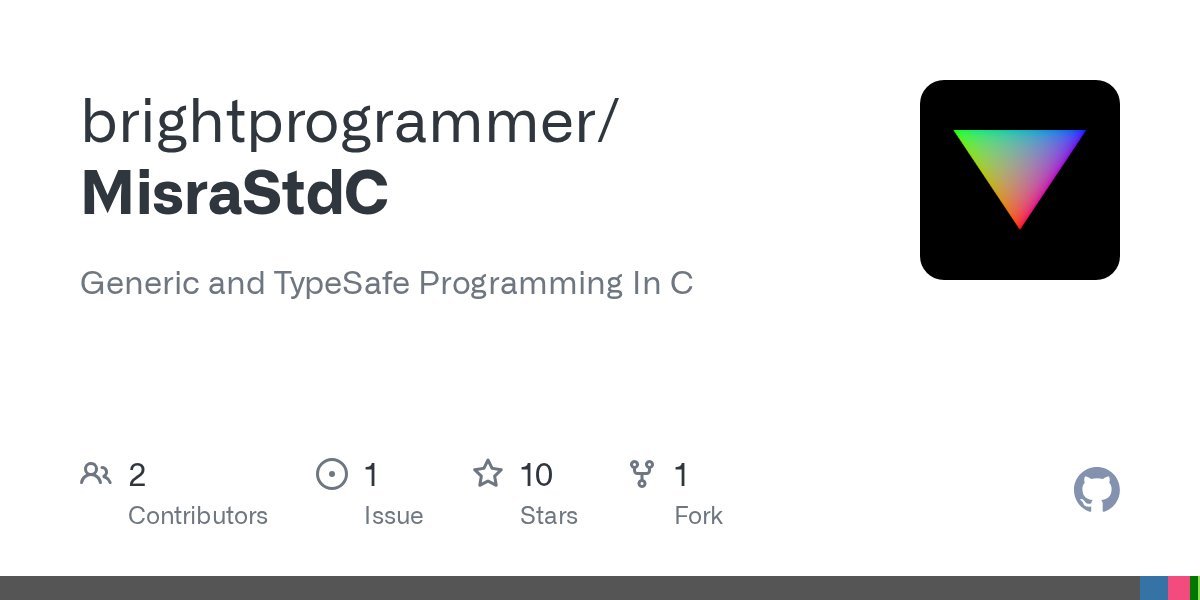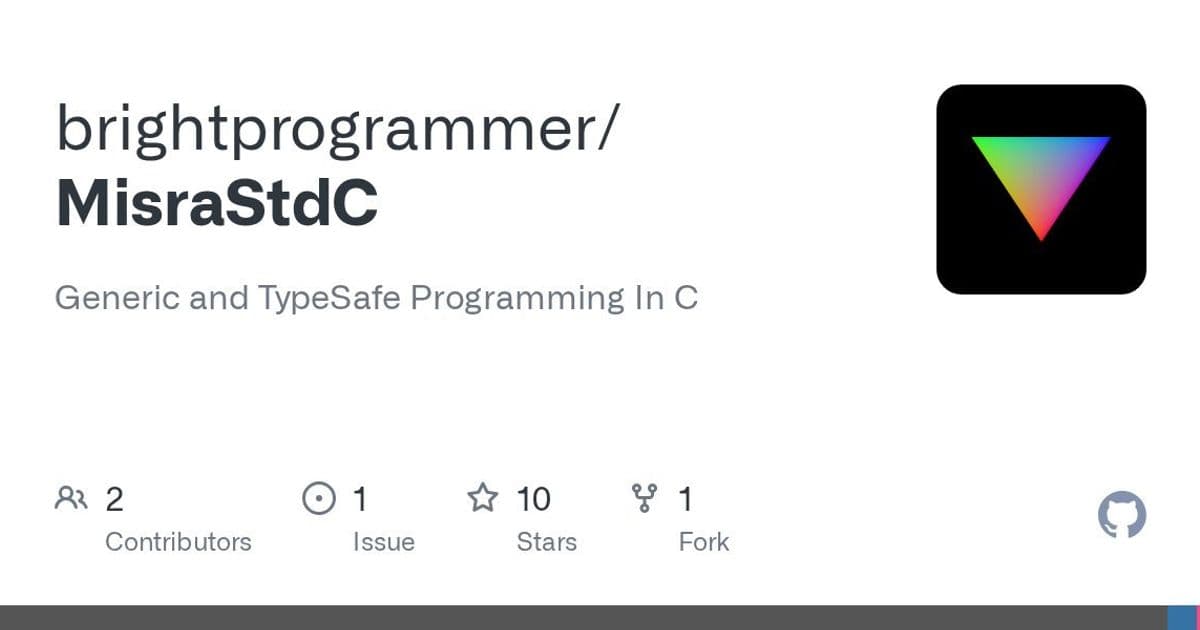Discover MisraStdC, an innovative C11 library offering Rust-inspired memory safety, generic containers, and type-safe I/O while preserving C's performance. This open-source toolkit eliminates common pain points with Vec arrays, Str strings, and JSON handling designed for modern systems programming.

For decades, C developers have wrestled with manual memory management, buffer overflows, and the absence of modern data structures—sacrificing productivity for low-level control. Siddharth Mishra's MisraStdC (not affiliated with MISRA standards) reimagines C development with a robust toolkit that brings Rust-like safety and ergonomics to the C11 ecosystem while maintaining zero-cost abstractions.
Why C Developers Need Modern Abstractions
C remains foundational in operating systems, embedded systems, and high-performance computing, but its lack of built-in generic containers and string handling leads to repetitive boilerplate and subtle bugs. MisraStdC addresses this gap with:
- Type-safe generic containers (
Vec<T>,Map<K,V>) using macro magic - Ownership semantics (l-value/r-value) for explicit memory management
- Rust-inspired formatted I/O with compile-time type checking
- Zero-overhead JSON serialization/parsing via declarative macros
- Cross-platform process management for IPC workflows
// Rust-style formatted I/O example
Str output = StrInit();
StrWriteFmt(&output, "Sensor: {.2f}°C", sensor_temp);
Key Innovations in Practice
1. Memory-Safe Containers
The Vec(T) container enforces initialization/cleanup protocols and offers:
- Ownership transfer semantics (
InsertL/InsertR) - Deep copy support for nested structures
- Boundary checks and corruption detection
Vec(Point) points = VecInit();
Point p = {.x=10, .y=20};
VecInsertL(&points, &p, 0); // Explicit ownership transfer
2. Type-Safe String & I/O Operations
The Str type (specialized Vec<char>) supports:
- Formatted output with compile-time type validation
- Splitting, substring matching, and case conversion
- Prevention of format-string exploits via _Generic dispatches
StrReadFmt(input, "Name: {}, Age: {}", name_str, &age);
3. Expressive JSON Handling
Declarative macros like JR_OBJ_KV and JW_FLT_KV enable frictionless serialization:
JW_OBJ(json, {
JW_STR_KV(json, "name", shape.name);
JW_ARR_KV(json, "vertices", shape.vertices, vertex, {
JW_OBJ(json, { JW_FLT_KV(json, "x", vertex.x); });
});
});
Under the Hood: Ownership and Safety
MisraStdC enforces strict initialization/deinitialization protocols. Structures define CopyInit and Deinit hooks for deep copying and resource release. The library's ownership semantics prevent double-frees and leaks:
InsertL: Transfers ownership (zeros original)InsertR: Copies value (retains original ownership)
Format Specifiers: Power and Pitfalls
The Rust-style {} placeholders support:
- Endian-aware binary I/O (
{>4}for big-endian u32) - Scientific notation (
{.3e}), hex ({X}), binary ({b}) - String case conversion (
{a}for lowercase)
⚠️ Critical limitation:
StrWriteFmt(&out, "{}", "literal"); // Fails!
const char* s = "safe";
StrWriteFmt(&out, "{}", s); // Succeeds
_Generic resolution works for char*/Str but not char arrays.
The Path Forward
Built with Meson and supporting GCC/Clang/MSVC, MisraStdC offers a pragmatic evolution path for C codebases. Its Unlicense dedication removes adoption barriers, while features like cross-platform process management (SysProc) demonstrate its systems-programming ethos. For developers shackled by C's verbosity, this library delivers modern ergonomics without compromising the language's soul.
Explore the documentation and contribute on GitHub.

Comments
Please log in or register to join the discussion